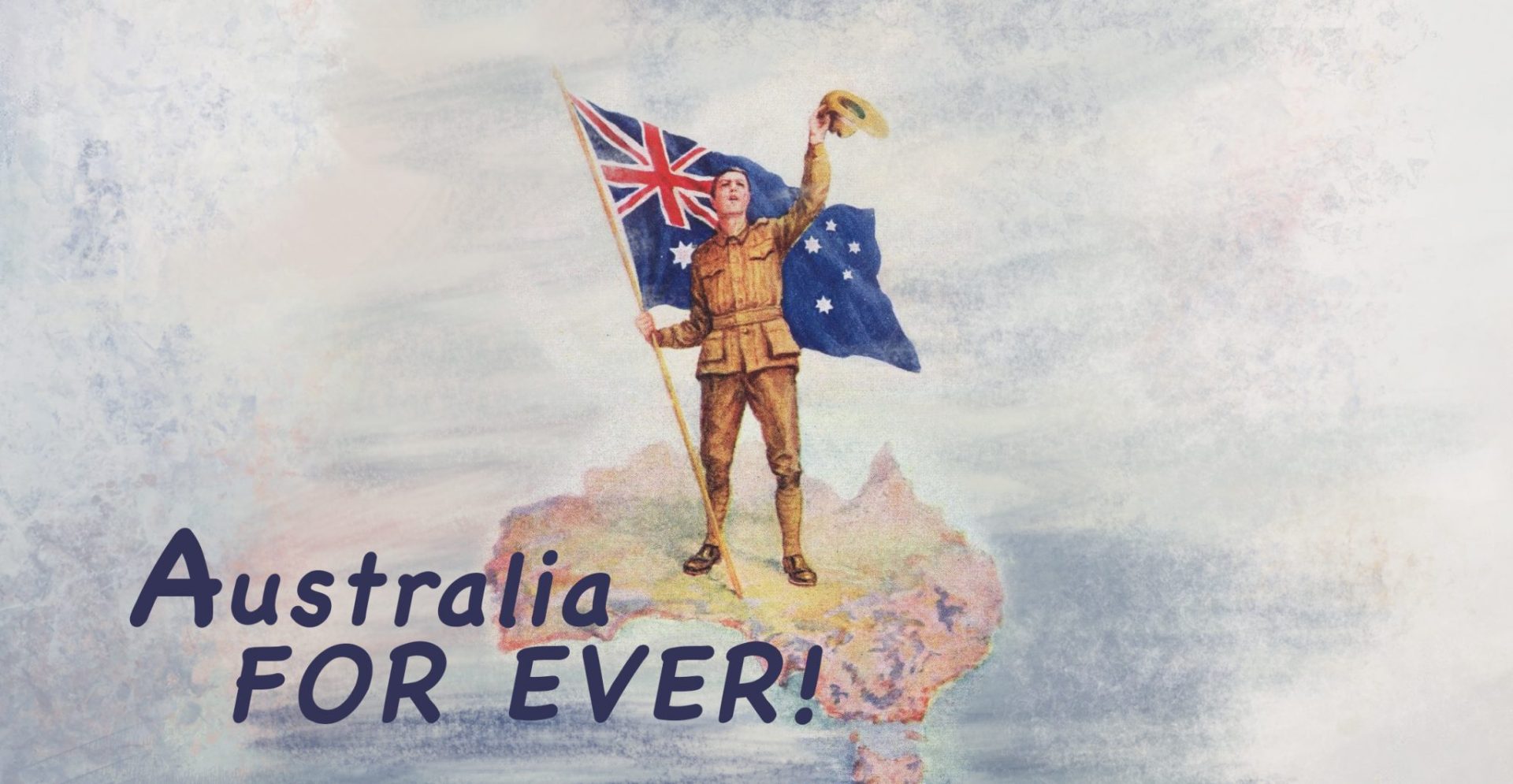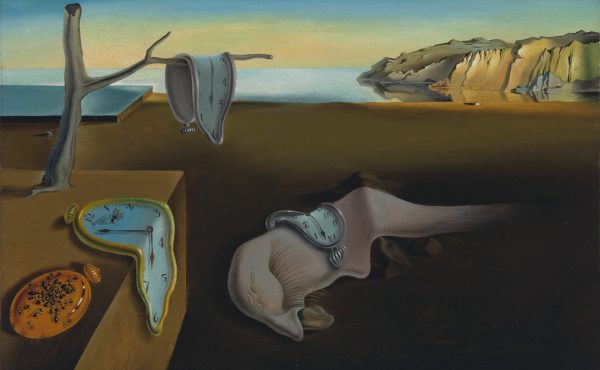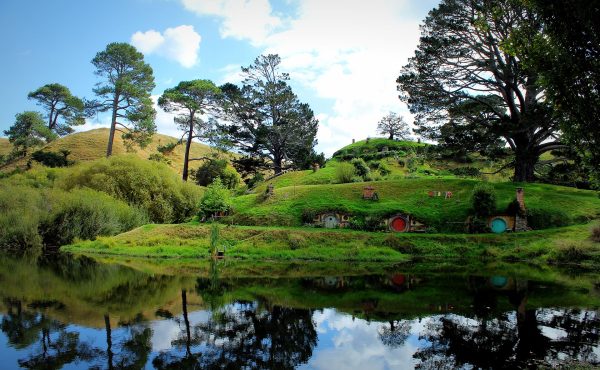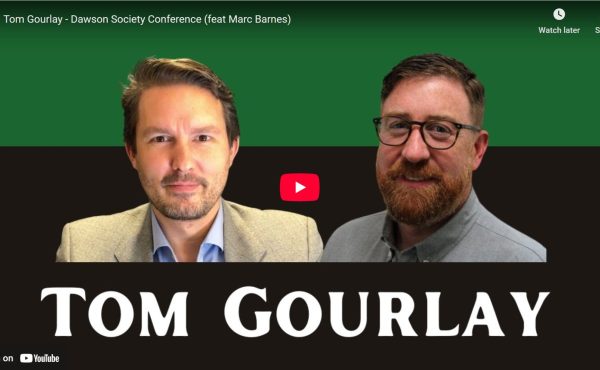This post was inspired by the theme of the upcoming Dawson Society conference: Home: Family. Place. Economics. Topics such as this and many more will likely find thorough treatment at the conference. If this has got you thinking, and you’d like to contribute, the call for papers is still open. For more information, see here. We will look forward to seeing you at the conference in July.
The question of what exactly constitutes Australian identity is one which continues to rear its head in popular media, and at an increasingly regular intervals. The most pressing local issues of our day such as home ownership, inflation rates, education, and migration to name but a few, not to mention the ever-changing and increasingly fraught geopolitical situation, all have a direct bearing on what it means to be ‘Australian’. And yet, the ability to articulate the meaning of ‘Australian-ness’ continues to elude us.
While it might be almost impossible for us to conceive of political life without it, the modern nation state is unique in history. Premodern modes of political organisation operated rather differently from how our contemporary nation states do, and such differences were born out very much in the self-identity of the people who make up these systems. Whereas premodern city-states, principalities, kingdoms, and even empires found a shared identity in the complex interrelation not simply of blood and soil, but in the localized and reciprocal interpenetration of cult, culture, and agriculture, modern nation states have had to look elsewhere. The evisceration of a commonly shared cultus (religion, for want of a better term) that occurred in response to the sundering of Christian unity in Europe in the 16th century and the rise of the modern nation state following the Peace of Westphalia (1648), as well as the drastic changes wrought to agriculture in the modern era and the gradual homogenization of culture has led to what many consider to be something of an identity crisis which faces most, if not all modern nation states of the West. Whatever problems we are having in Australia seem to be magnified in the U.S. and Canada, to say nothing of the countries of Western Europe.
Here in Australia, discussions and debates concerning national self-identity take on another complexity due to the historical fact of colonialization—a reality which causes significant tension for the sons and daughters of more recent migrants to this land inevitably in their ability to call this land, or any particular portion thereof, ‘home’. The struggle that Australians of European origin have had and continue to have in legitimating their claim here in the face of the reality of widespread displacement of Indigenous populations and the great suffering that colonialization brought upon the peoples of this wide, brown, flat land is one which poses no easy answers. Recent experience has shown us that it is nigh on impossible—even if it were desirable—to establish any kind of coherent national identity on the back of the colonial experience if we are to recognize the tragic reality that this imposed on the Aboriginal peoples of this land. This is no doubt the reason for the annual debate which kicks up each January in time for the Australia Day celebrations on the 26th.
The sad fact of the matter is that most nation states look to establish a sense of shared identity for their citizens some primeval act of shared bloodshed, for it is borne in the crucible of war, of self-sacrifice and tenacity in the face of unutterable difficulty and devastation, that the modern nation state finds its sense of self. For Australians, the national holiday of ANZAC is what we tend to hang our slouch hat. This is the high day of our national civic religion (from the Latin religare: that is, ‘to bind). Calling this day and its various liturgies into question is not considered to be so much an act of high treason as it is to be heretical and indeed sacrilegious.
The story of ANZAC is one which every product of the Australian school system has been thoroughly indoctrinated into: the highly romanticized tale of the valiant efforts of our best and brightest young men who gave their all in service to their beloved country. What is little reported in the school setting is that those men, who we are told exhibited apparently uniquely Australian ‘values’ such as mateship (friendship?), courage, resilience, self-sacrifice, and egalitarianism, all lost their lives in a poorly conceived and executed, and ultimately failed, military offensive on the Turkish peninsula in an act that had little to no impact on the outcome of the Great War, rendering the tremendous loss of Australian life meaningless by some standards. The details here, are not what matters. What matters is the shedding of blood.
Now, there is no doubt that the men who fought and died in Gallipoli exhibited many of the virtues that are often ascribed to them. But the claim that such virtues were exhibited in the struggle for ‘Australia’ as a modern nation state is perhaps more than a little far-fetched. The stories of heroic self-sacrifice which abound are indeed inspiring and praiseworthy, but co-opting for the nation the act of laying one’s life down for one’s friend—whether they be particular friends and family ‘back home’, or a brother in arms who one has shared what meagre life is available to them in the face of the horrors of industrialised war on a scale never before seen—seems to be perverse at best.
Yet, as with seemingly all modern nation states, it is this shedding of blood which is the common ground which unites all Australians. This is the source of our national unity. Where ties of kinship are nonexistent, and continental bounds so vast as to render the landscape unfamiliar to most beyond what is visible on a screen, there is a need for a unifying point that bears a shared sacral dimension. The sacrifice of life on the altar of the god of life-style: this is where we find our identity. And this, seemingly, is the cause of the ongoing bloodshed that characterises the lives of all modern nation states, what many have referred to as the military industrial complex.
But is this the only way that we are to find a sense of identity, a sense of home amongst ‘the nations’? Surely, the complexities of establishing a truly unitive national identity in a modern and post-colonial context are immense. And while it is folly to simply pine nostalgically after pre-modern Christendom, or a post-WWII, pre-1968 ‘golden era’ (an era which ignored almost entirely non-European Australians), the danger in not having this discussion in a frank an open manner risks us slipping into the kind of neo-Nietzschean hard-right identitarian nationalism, or an insipid and antihuman, moralistic, leftist, homogenized global culture of individualistic fragmentation.
But what if the sacrifice has already been made? And made in such a way as does not need to be repeated.
It seems to me that the Church has something unique to offer to the conversation here. The difficulty it faces however is that even offering what it has will no doubt cut sharply against the grain of the Anglo-American liberal culture which prefers to bracket questions of ultimate meaning from the public discourse. The privatised faith that we have become accustomed to hides the light we’ve been given under the bushel bourgeois comfort, and so we watch as the nation and the world attempts in vain to establish peace by means of continued bloodshed, when He who offers a peace which the world cannot give, a peace bought by the price of his own blood, offered in a once and for all sacrifice waits.



